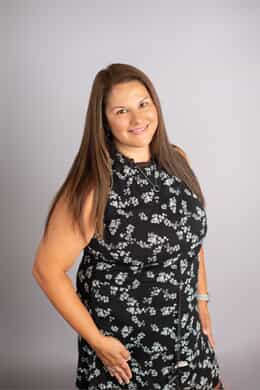Should I Stay or Should I Go? Navigating High-Conflict Relationships

Hey there, I’m Stacey Beal, the high conflict relationship coach with O’Connor Family Law’s Progress Pathways Coaching program. Today, we’re diving deep into a question that plagues many of us at some point in our lives: Should I stay in this relationship or is it time to walk away from my marriage? It’s a question that stirs up a whirlwind of emotions, doubts, and fears. Maybe you’re grappling with thoughts like, “Is it worth giving up the life I have now?” or “How will this affect our children?” Perhaps financial worries are weighing you down. When these questions start crowding your mind, it’s a signal that it’s time to evaluate your relationship.
CAN THE MARRIAGE BE REPAIRED? IS IT TOO LATE?
It all comes down to conflict- after all, if you didn’t have any conflict in your relationship, you probably wouldn’t be reading this article right now (and shocker, but EVERY relationship has conflict, it’s just a question of how you handle it). One of the first things to consider is whether your conflicts are normal. But what even defines “normal” conflict? The real key to the success or failure of a marriage lies in how you handle disagreements, arguments, and conflicts. Let that sink in for a moment. It’s not the presence of conflict that predicts the outcome; it’s how you deal with it. When effective communication breaks down, it takes a toll on your mental and physical health, family life, and more. It’s a bit like the attraction of magnets, where opposing forces draw together. In a marriage, these forces are complementary. Remember, differences don’t mean you don’t love each other, and those differences could even be the reason why you were attracted to them in the first place.
Dealing with Differences
Differences in goals, interests, desires, and parenting styles are normal in any relationship. What truly matters is how you address these differences. Many conflicts could be resolved with a different approach or by considering new perspectives during a conversation.
The Right Approach to Conflict Resolution
So, what’s the right approach to dealing with conflicts and reaching resolutions? It’s about putting yourself in your partner’s shoes, listening to their perspective, and empathizing with their point of view. While this approach is a concise answer to a complex issue, it’s a cornerstone of a healthy and happy marriage.
HEALTHY CONFLICT VS. UNHEALTHY CONFLICT
Understanding the difference between healthy and unhealthy conflict is crucial. Happy couples engage in respectful dialogue. They listen to each other, maintain eye contact, and demonstrate care even during disagreements. Their fights focus solely on the issue at hand, and they consider each other’s emotions. Winning an argument isn’t about defeating your partner; it’s about building a happy and healthy relationship.
SIGNS OF UNHEALTHY CONFLICT
Unhealthy conflicts are marked by defensiveness, a refusal to take responsibility, criticism, and attacking your partner instead of addressing the issue. Resorting to name-calling and hurtful comments only damages your relationship further. To fight fairly, you need to develop good communication skills that avoid destructive behaviors.
RED FLAGS: ABUSIVE OR THREATENING BEHAVIORS
Physical violence or threats of harm, whether toward your partner or children, are never acceptable. Verbal disagreements are common in all couples, but if they outnumber moments of peace, it’s a sign that something’s amiss.
Constructive Conflict Resolution
To maintain a healthy, happy marriage, it’s essential to handle conflicts constructively. This means:
1. Avoid a Harsh Startup: The first few minutes of a conversation set the tone. Begin gently with “I” statements rather than blame.
2. Constructive Criticism: Complain without attacking your partner’s character. Focus on the issue, not the person.
3. Validate Feelings: Show empathy and avoid invalidating your partner’s emotions or experiences.
4. Watch Your Tone: Maintain a respectful tone and avoid aggressive language.
5. Avoid Defensive Responses: Instead of counterattacking, try to understand your partner’s perspective.
6. Don’t Stonewall: Be present and engaged in conversations, even if you’re busy.
7. Avoid Flooding: Manage your emotional responses to avoid overwhelming your partner.
8. Keep Past Issues Out: Stay focused on the current problem and avoid dredging up old grievances.
THE POWER OF SEEKING SUPPORT
Many couples delay addressing issues until they become explosive. Instead, consider regular couples counseling or coaching sessions, where you discuss concerns and tackle them before they escalate. These sessions provide a safe space for open communication and help you work together to find solutions.
The Decision: Stay or Go?
In the end, deciding whether to stay in a relationship or leave is a deeply personal choice. It hinges on several factors: what you bring into each other’s lives, whether you’re better together or apart, and whether you’re both willing to put in the effort to make it work. Remember, it takes two committed individuals to build a thriving relationship.
If you’re currently facing this decision, take your time, reflect on your relationship, and prioritize open and effective communication. Seeking support, like high-conflict relationship coaching, can also be a valuable step.
I hope this post has given you some insights and guidance on navigating high-conflict relationships. Remember, you’re not alone, and there are resources and support available to help you make the best decision for your unique situation. If you have more questions or need assistance, feel free to reach out. Wishing you the best on your journey toward a healthier, happier relationship.

Stacey Beal
High Conflict Relationship Coach
Stacey Beal is O’Connor Family Law’s Client Support Coach. She has spent over 15 years helping clients improve their communication skills, build confidence, and develop tools for healthy relationship management. As a Divorce and Custody Coach specialist, she knows that life isn’t always easy and has learned how to help her clients turn difficult life circumstances into an opportunity for personal growth. Ready to make a change? Contact us to learn more about how divorce coaching could help you create your brighter future.


